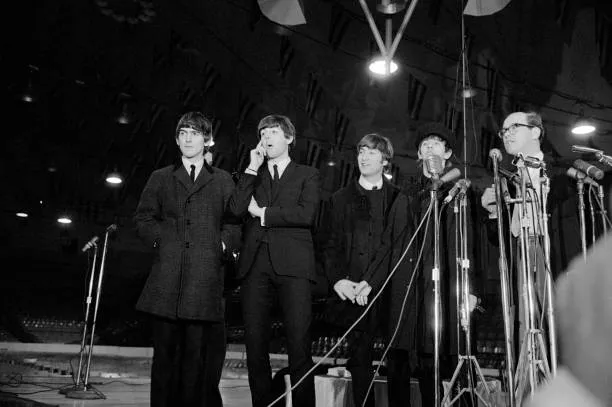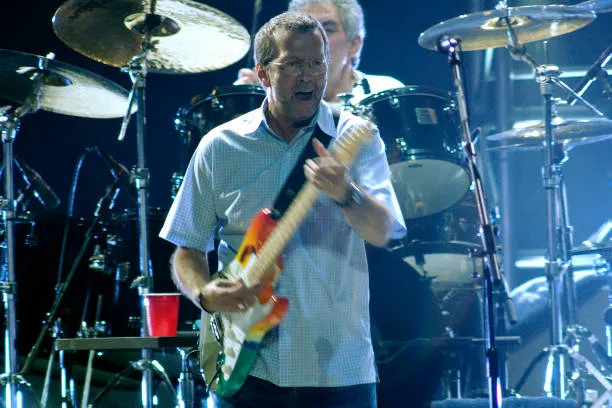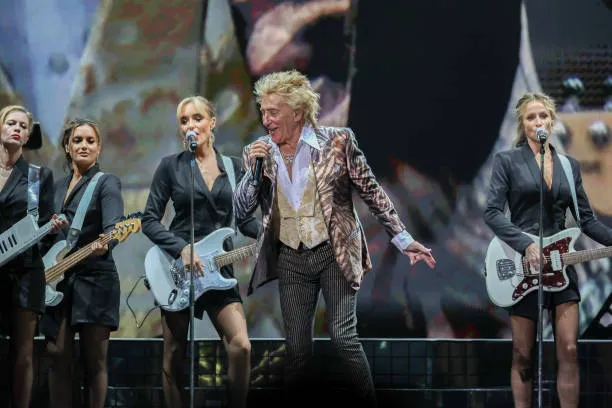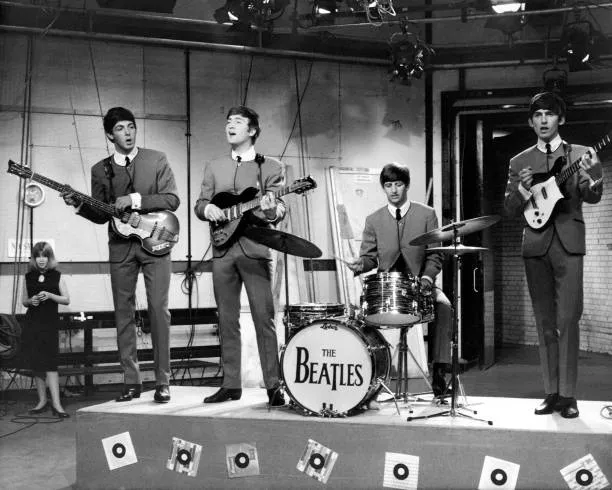Eric Clapton, known as "Slowhand" and often regarded as one of the greatest guitarists of all time, has not only influenced generations of musicians but has also played a significant role in shaping guitar technology and tone. His quest for the perfect sound has led to innovations in guitar design, amplification, and effects pedals.

The Clapton Tone:
Clapton's signature sound is characterized by its smoothness, sustain, and emotive quality. He's known for his precise finger work, expressive bends, and his ability to make the guitar "sing." This distinctive tone has been a cornerstone of blues and rock music for decades.
Influential Gear:
- The "Blackie" Stratocaster: In the 1970s, Clapton assembled his famous "Blackie" Stratocaster from parts of several 1950s Strats. This guitar became his main instrument for many years and was crucial in developing his signature sound. In 2004, "Blackie" was auctioned for charity, fetching nearly $1 million.
- The "Woman Tone": While playing with Cream, Clapton developed what became known as the "Woman Tone." This was achieved by using the neck pickup of his Gibson SG and rolling off the tone control. This warm, singing sustain became highly influential in rock guitar playing.
- Marshall Amplifiers: Clapton's use of Marshall amplifiers, particularly during his time with Cream, helped popularize the "British" rock sound. His preference for pushing tube amps to their limits contributed to the development of overdrive as a desirable tonal quality.
Signature Models:

Clapton's influence extends to guitar manufacturing. He has several signature models with major brands:
- Fender Eric Clapton Stratocaster: Introduced in 1988, this was Fender's first artist signature model. It features a unique mid-boost circuit that Clapton requested to achieve his desired tone.
- Martin Eric Clapton Models: Clapton's collaboration with Martin Guitars has resulted in several signature acoustic models, reflecting his influence beyond electric guitar.
- Gibson and Epiphone Models: While less common, Clapton has also had signature models with Gibson (a recreation of "The Fool" SG) and Epiphone (a Casino model).
Effects and Pedals:

While known for his relatively simple setup, Clapton has influenced pedal design:
- Vox Wah-Wah Pedal: Clapton's use of the wah-wah, particularly on "Tales of Brave Ulysses," helped popularize this effect in rock music.
- Dallas Rangemaster: This treble booster was key to Clapton's tone during his time with John Mayall & the Bluesbreakers, contributing to the famous "Beano" tone.
Wireless Technology:
In the 1970s, Clapton was one of the first major artists to adopt wireless guitar technology, freeing him to move around the stage without cables.
Impact on Guitar Culture:
Clapton's gear choices have often led to surges in popularity for certain instruments and equipment. His use of specific guitars or effects often results in increased demand and even reissues of vintage models.
Educational Influence:

Beyond his direct impact on gear, Clapton has influenced guitar education. His playing style and tone are often studied and emulated by aspiring guitarists, leading to numerous instructional materials focused on achieving the "Clapton sound."
Conclusion:
Eric Clapton's influence on guitar technology and tone is a testament to his importance in the world of rock and blues. His quest for the perfect sound has not only shaped his own legendary career but has also driven innovations in guitar manufacturing and effects design. From his signature Stratocaster to his pioneering use of effects, Clapton's contributions to guitar technology are as significant as his musical legacy. His influence continues to be felt in the guitars, amplifiers, and pedals used by countless musicians today, ensuring that the "Clapton tone" will inspire guitarists for generations to come.



